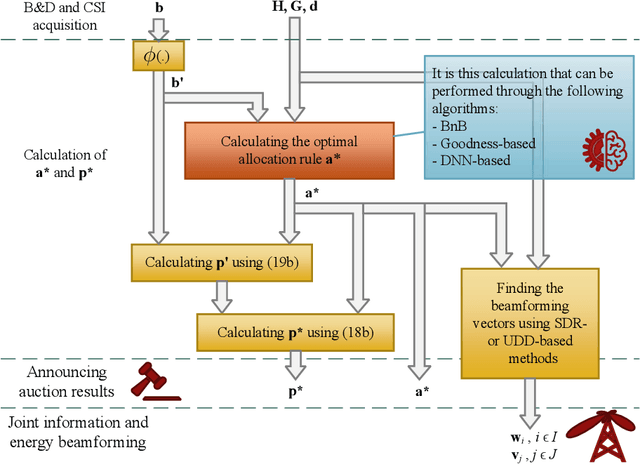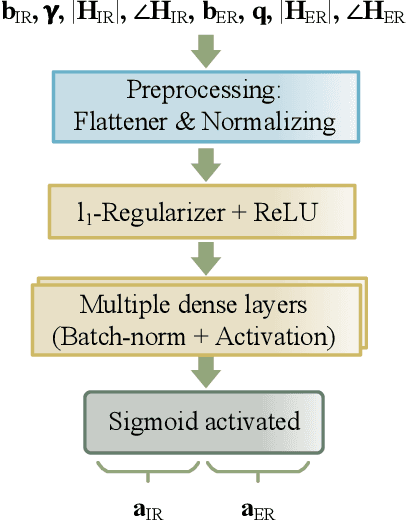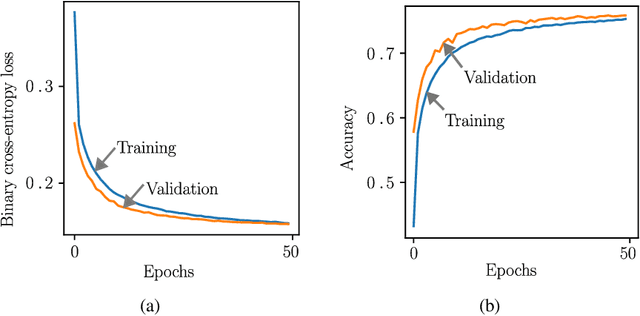Deep-Learning Based Auction-Driven Beamforming for Wireless Information and Power Transfer
Paper and Code
Jul 07, 2021



In this paper, we design a deep learning based resource allocation framework, in the form of an auction, for simultaneous information and power transfer from a hybrid access point (AP) to information devices and energy harvesting devices, respectively. Using Myerson's lemma and the concept of virtual welfare maximization, we develop an optimal dominant-strategy incentive-compatible mechanism for the AP to maximize its expected revenue, based on the devices' bid profiles, valuation distributions, demand profiles, and channel state information. In so doing, we formulate the revenue maximization problem, which is a mixed-integer non-linear program, and propose an efficient Branch-and-Bound (BnB) algorithm to solve the problem using semidefinite relaxation technique in each branch. Since the problem has exponential time complexity, using BnB algorithms can be impractical for real-time applications. To circumvent this, a deep neural network (DNN) is proposed, and trained to predict the optimal mechanism for beamforming the data and the energy towards the information and energy devices, respectively. We use the BnB algorithm to solve the problem offline and populate the training dataset. The proposed DNN architecture is indeed a multi-layer perceptron, which is trained well to map the heterogeneous input to the desired output with high accuracy. Furthermore, we propose a heuristic iterative solution whose accuracy performance is comparable to that of the DNN-based solution. The heuristic solution has polynomial time complexity whereas the DNN-based solution has linear time complexity.
 Add to Chrome
Add to Chrome Add to Firefox
Add to Firefox Add to Edge
Add to Edge